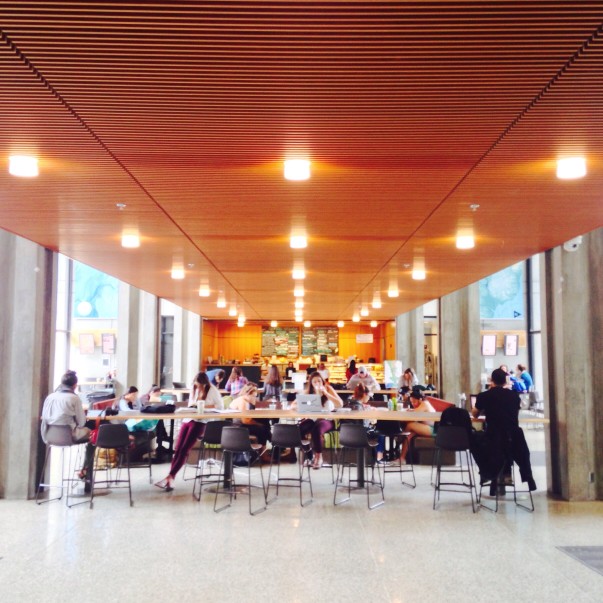Genevieve Markee is a rising senior at the University of Richmond, where she studies political science with minors in English and Chinese. She was a participant in the 2020 Summer Honors Program course on “Renewing America’s Social Fabric: Faith, Community, and Public Policy” taught by Dr. Ryan Streeter.
For most of my life, I lived in a world where politics never came up at church, and the Church never came up in discussions of politics. Whenever the two did meet, I saw political leaders turning the Church from its prophetic ministry and making it a tool for partisan ends. Not until my participation in the AEI Summer Honors Program did I feel as though substantive policy discussion grounded in shared faith could even occur. The class I participated in, “Renewing America’s Social Fabric: Faith, Community, and Public Policy,” led me to new discoveries about how government and religion can work together for the common good. I highlighted many passages from my readings and eagerly engaged in discussions with my peers.
During this time, however, news outlets revealed an America on fire. From my vantage point on the ground in Richmond, Virginia, I witnessed a city facing a reckoning for decades of silence and discomfort with regards to its racial history. Although we did not dwell on current events during our class discussions, looking back I wish we had. Amidst the fever of righteous anger and unrighteous mayhem sweeping the streets of my city, I saw something beginning then that has only become clear to me in the succeeding weeks. I saw the Church waking up and engaging in productive public action.
Congregations from all denominations and locations have come together to worship, pray, and call for change. Organized groups of Christians have staged their own rallies or joined larger marches, bringing with them a message of peace and reconciliation. Sermons and interchurch conversations are beginning to broach the topics of race and political engagement. Rather than allowing itself to be harnessed by political leaders, the Church has harnessed public sentiment to bring itself and its message into the spotlight—and not just in Richmond. A major march took place in Washington, D.C., featuring notable names like David Platt, Thabiti Anyabwile, and Mitt Romney. Videos from around the United States have shown groups of protestors marching down streets singing songs of praise. In other words, the Church has started showing up and lifting up its voice on issues it has long ignored—or, what is worse, implicitly condoned.
This is where the Church needs to be if it is to become the cornerstone of revitalization in American society. As an institution founded on ideals of love and mutual respect, what better than the Church to foster genuine community and meaningful discussion? However, only the Church can realize its own potential as a space where reconciliation and communion can occur. To do so, it needs to make sure that it does not shy away from issues that affect the people within and outside of its walls. I agree with Alexis de Toqueville’s assertion that “the only effective means which governments can use to make the doctrine of immortality of the soul respected is to daily act as if they believed it themselves.” The converse is also true: the best way for the Church to retain significance in public life is to act as though it considers public life—and the issues of public life—important.
Although many people in my generation have come to see the Church as either a political prop or an out-of-touch institution, it does not have to be either of those things. The stories of the Bible, like those of Daniel and Paul, are stories of people speaking truth to leaders who have fallen short of God’s call to “learn to do good, seek justice, [and] correct oppression” (Isaiah 1:17 ESV). When God seeks leaders for the Church, He seeks those who are willing to stand in the public squares to speak the truth. The Church needs to prioritize discussions about how Christians should engage in these spaces, not only to cement its role as a local provider of moral grounding and community support, but also to fulfill its biblical mission.
I see those discussions happening in congregations around Richmond. It has taken far too long, and I wish that less shocking and upsetting circumstances had been necessary to bring the Church to its current moment of awareness and activity. At the same time, I am grateful that I get to be a part of this movement. I am also grateful to the Initiative on Faith & Public Life and the AEI Summer Honors Program for equipping me to think deeply about both the necessity of this moment and its potential positive impact on the countless communities that the Church inhabits across America.



